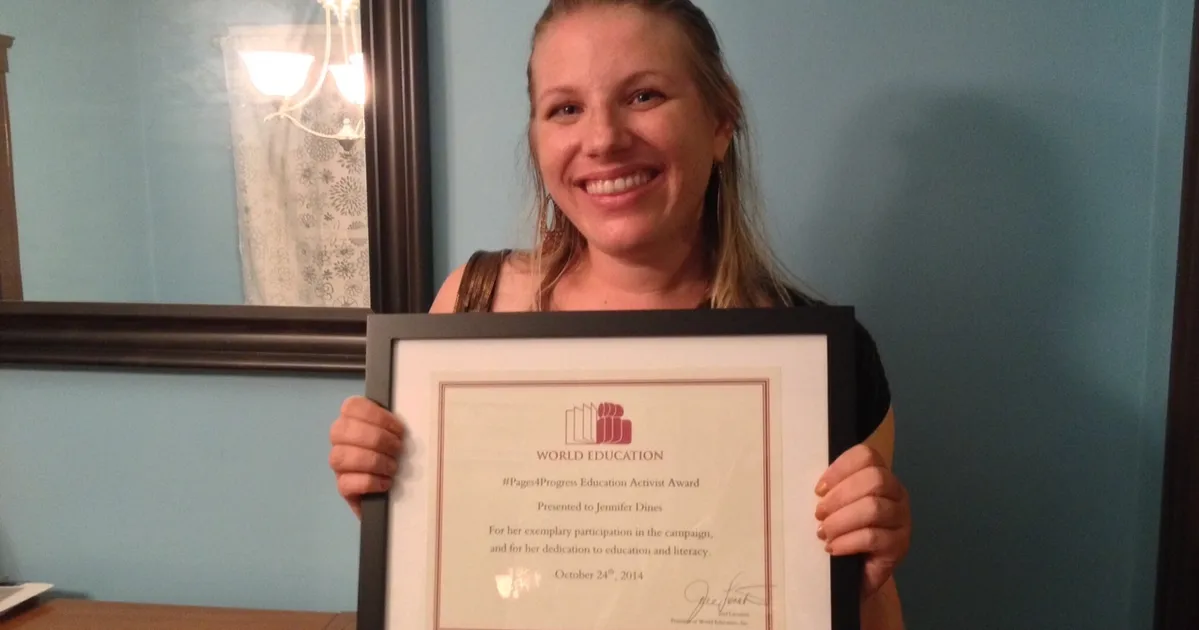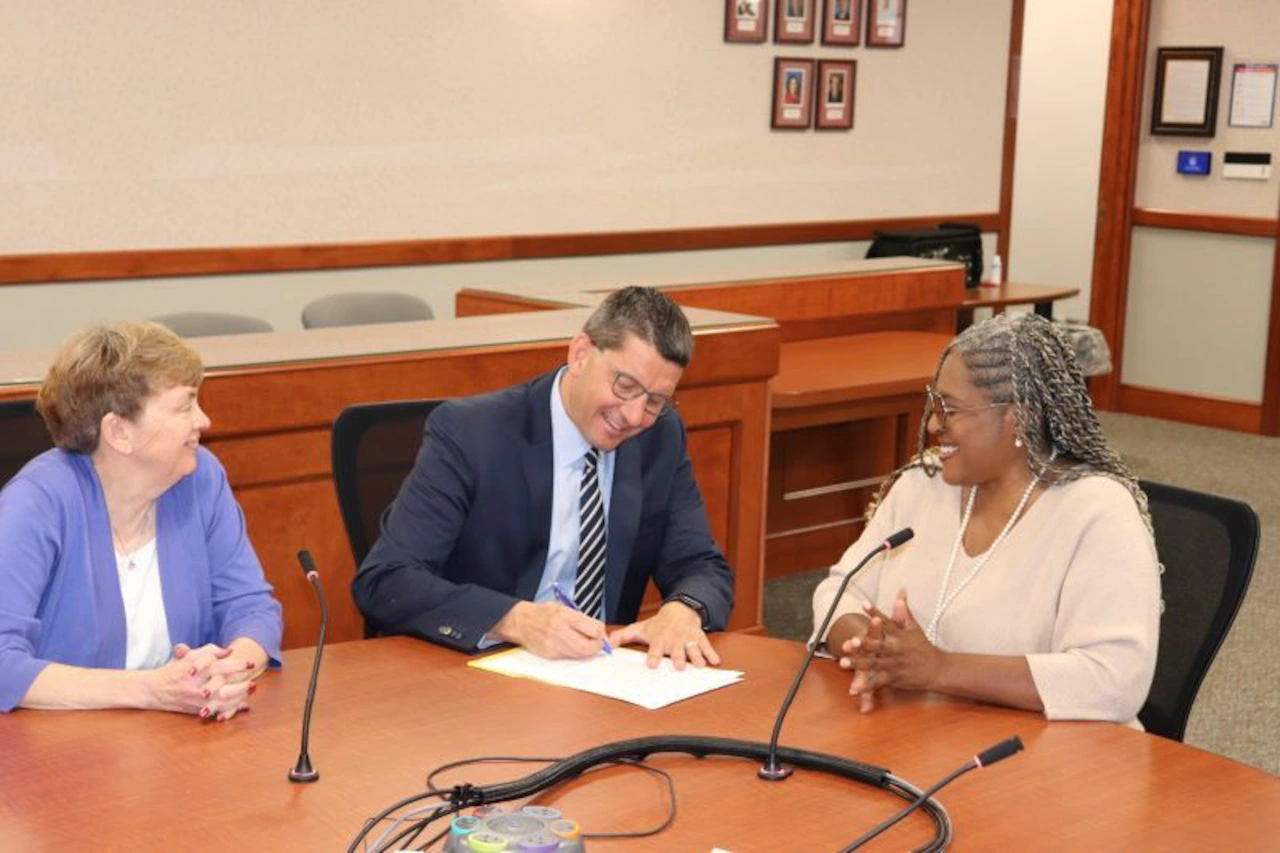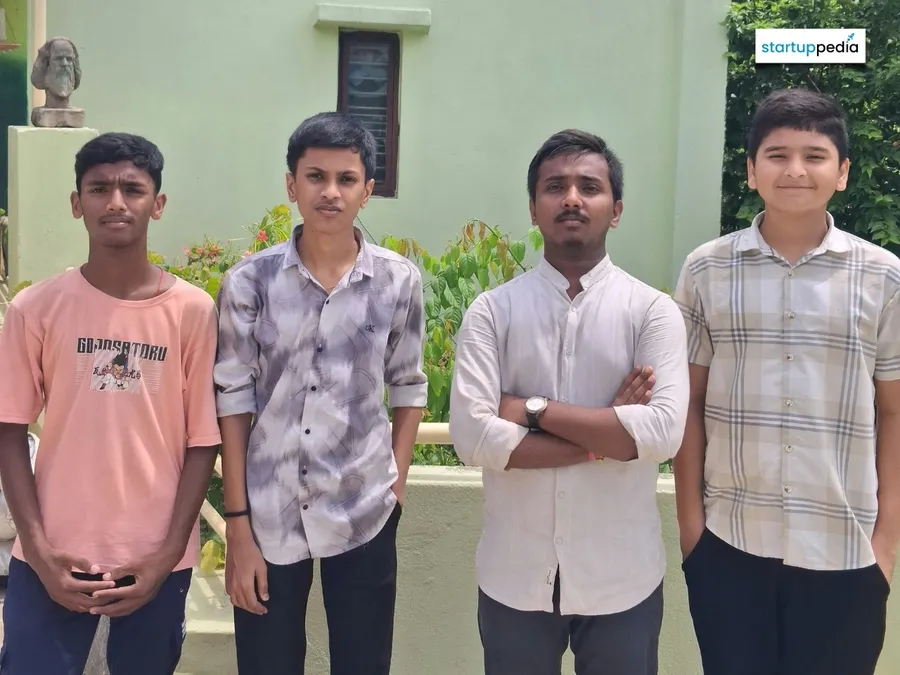I Was An Award-Winning Teacher By Day. After Dark, My Behavior Was Increasingly Troubling.

I stood in front of the class of middle-school ESL students. I was wearing a flower-print baby blue dress and a pair of pearl earrings, but my “perfect teacher” costume couldn’t stop the profuse sweating, the pins and needles shooting down my arms and the redness in my face.
I was gripping a dry-erase marker, but my numb fingers caused me to drop it on the floor. I worried I would drop it again if I attempted writing on the board.
Advertisement
“Hanh,” I asked our best speller, “could you write today’s question?”
I dictated: “What might you find under the back porch?”
When she finished writing, I read the question and students repeated, mirroring me as I acted out “under” by putting my hands under an empty student desk. I projected images of back porches from my students’ countries: Vietnam, Cabo Verde, Dominican Republic, and El Salvador. Later that day, we read a poem titled “Under the Back Porch.”
As the students shared their answers with their table groups, I circulated, smiling and high-fiving, but I wasn’t really listening to their answers. Instead, I fretted: Would they smell the booze seeping from my pores? Would they know I was floating away, that I wasn’t sure if I was real? I later learned a word for this: dissociation.
Tomás’ voice brought me back to Earth when I heard his response from across the room: “Maybe there’s much dog crap under the back porch.”
Advertisement
I caught his eye and gave a stern look. But I then had to step out into the hall so my students couldn’t see me nearly bust out in laughter.
God, I really needed that. A distraction from my self-disgust and my shame.
I began drinking in 2003, the year after finishing my bachelor’s degree at Berklee College of Music. After college, I taught music in an after-school program. Since I no longer spent 14 hours a day, seven days a week, practicing piano and composing ambient music in the computer lab, I had too much time to think about things that devastated and depressed me.
It didn’t help that I was the lead singer of a semi-popular rock band, and, after shows, I drank all the drinks that boys in the audience bought me. I made out with them until I blacked out with them and woke up in their strange beds the following morning. And after I was drugged and sexually assaulted by a prominent figure in the local music scene, I started drinking a couple glasses of wine at home alone before heading out anywhere I could possibly run into him or one of his friends.
Advertisement
But I liked myself as a teacher, coming to know the students and witnessing their progress, so I decided to become a school teacher. I drank while I worked on my Master of Education, taking pride in the fact that I could handle five to seven beers a night while reading textbooks and typing papers. I was a binge drinker with a 4.0 GPA.
When I started teaching English as a second language in the public schools, the drinking stopped for a while. On weekdays, I spent from 7 a.m. to 7 p.m. in my classroom. On weekends, I worked out in the morning and lesson-planned all afternoon. But the drinking gradually crept back in, and my life disintegrated into two states of being. Good Jenn, the perfectionist teacher. Bad Jenn, the black-out drunk.
I never drank to feel better; I drank because I didn’t want to feel anything. When I wasn’t teaching or drinking, my feelings of unworthiness cropped up like an invasive species of plant: weakening, displacing and killing the shreds of self-esteem I clung to from my career achievements.
Advertisement
And there were so many achievements. These days, just thinking about all of them exhausts me: my initial Master of Elementary Education from Lesley University, a Master of Special Education from Northeastern University, a certificate of advanced graduate study from Massachusetts General Hospital’s communication disorders clinic, a certificate in bilingual education from Boston College, and a national board certification in “English as a New Language.”
And the awards. A $10,000 travel grant from Fund for Teachers for a summer learning Spanish in the Dominican Republic. A $30,000 leadership grant that allowed a team of other accomplished teachers and me to hold a culturally responsive teaching conference. An award from the U.S. Department of Education for our same team to hold another conference, this one focused on quality writing instruction.
Advertisement
And the class projects. One year, my students took 10 field trips around town and wrote about welcoming community spaces. The nonprofit 826 Boston published their writing in a book called “We Hope You’ll Visit: A Neighborhood Guide to Dorchester.” U.S. Rep. Ayanna Presley of Massachusetts wrote the forward.
The more I honed my teaching skills and pushed project-based learning, the better my students did on state exams. The central office started showcasing my classroom to visitors. Some of my students exited ESL within a year. Some earned full scholarships to a summer academic program at an insanely expensive New England boarding school. Many have now graduated from four-year colleges.
My most public recognition of all came from Lady Gaga. Her Born This Way Foundation awarded me $5,000 to fund a mental health project I had submitted. In the application, I wrote about the need for this work to support my students in coping with all the stressors of leaving their home countries and starting their lives over in the United States. I used the money for supplies to integrate the arts with social and emotional learning.
Advertisement
Gaga’s mother, Cynthia Germanotta, praised my work in newspapers and online publications. Her words truly touched my heart: “Her project really resonated with our core message, which is all about making a kinder and braver world.”
As a longtime Gaga fan, I felt so honored, recognized and seen for the work that I put into supporting my students. Yet the irony of winning a mental health-focused award never escaped me. Impostor syndrome sank in. Teachers should be role models, and, with my problems, I knew I could never be one.
Between the start of my career and the end of my drinking, I had some long periods of sobriety. I stayed sober from New Year’s of 2013 until the Boston Marathon bombing in April of that year. But after the shelter-in-place order lifted, the bombing functioned as a great excuse to hit both the bar and the liquor store. I didn’t drink during my pregnancies, or in the first couple months of my daughters’ lives.
Advertisement
For years, I maintained a strict rule: No drinking until dark. I often stayed late at work grading, cleaning, crossword puzzle-ing, killing time until dark. I loved watching the sun’s descent reflecting off the glass of the Prudential Center downtown before I went home, where I could immediately drink.
I hated the days I had to white-knuckle through preschool pickup and family dinners. I hated the end of winter because of all the time it took to get dark in the summer. I stayed up after everyone went to bed so I could drink as fast as I wanted, keeping the bottles by my side for easy refills. I often blacked out on the couch, though I usually climbed into bed at some point in the wee hours.
But by 2021, I drank as soon as I got home from work, even if the sun was shining. And my behavior while drinking got really weird. For years, when my family was awake, I had sipped slowly while marking up huge books from the canon, like “The Divine Comedy” or “East of Eden,” as if wine was simply a casual accessory to my studies.
Advertisement
But, a month before the day I dropped the marker, I stayed up until 1 a.m. on a school night dancing along to a YouTube video of the Doors’ “Live at the Hollywood Bowl.” After an hour of continuous dancing, I danced to the whole thing again. I then drunk-dialed family members that I rarely saw, always beginning with, “I really wanted to catch up.” My phone indicated that the calls lasted 90 minutes, yet I couldn’t recall much of these conversations.
The night before the day I dropped the marker, I sent over two dozen DMs and Facebook messages to people I knew from the music scene, inviting them to get together, to meet my children, to ask why I hadn’t seen them in years.
I used alcohol for so long to tamp my energy down, but it came to a point where I couldn’t go to bed before 3 a.m. What was even more startling was that when I woke up at 7 a.m., I felt fine. That was what terrified me: the lack of sleep coupled with the drinking along with the fact that I fully functioned in my workday.
Advertisement
That day I dropped the marker was the first time my alcoholism interfered with my teaching. But it didn’t completely surprise me. In the months prior, drinking had stopped working, no matter how much alcohol I guzzled down. That date, May 6, 2021, became my sobriety date and I have not had a single sip since.
That summer, for the first time in years, I did not teach summer school. Instead, I spent the summer at Alcoholics Anonymous meetings, walking while listening to audiobooks on recovery, reading and re-reading Caroline Knapp’s “Drinking: A Love Story” and Leslie Jamison’s “The Recovering,” crying as I remembered people I had hurt and people who had hurt me. I watched “The Sopranos” for the first time and felt jealous of how Tony could act out his anger and I couldn’t.
I’m not gonna lie: Facing feelings and thoughts that you don’t want to deal with sucks. Sobriety will not solve all of your life problems. But, as a sober person, I don’t push issues away anymore. I have the capacity to handle them without so much anxiety and sorrow.
Advertisement
As drinking moved farther into the past, I committed more and more to building a life outside of teaching. Committing to being present for my family, building a writing practice, taking classes at a gym twice a week. I’ve even gained a few friends, not all of them teachers.
With the non-teaching friends, I rarely talk about work. I am free to talk about Page Six and my favorite bands and my thrift store finds and the books I read. I’m more like that girl I left behind a long time ago.
Advertisement
But I will always be grateful for my teaching career; it stopped me from destroying myself. And when drinking penetrated the wall I’d built between my addiction and my commitment to my students, I was finally able to stop.
Toward the end of last year, Adrian, a junior from Brazil with extremely spotty attendance, called out during an independent reading assignment: “Miss, I need help.”
I waved him over to my desk. I read to Adrian from the beginning of the passage on Dr. Rebecca Crumpler, America’s first Black woman doctor, and he followed along with the tip of his pencil. I arrived at a sentence about Dr. Crumpler growing herbs for natural remedies in her garden.
Advertisement
Adrian told me about his grandparents’ farm in Brazil, his grandmother’s nature medicine, how his father remains in Brazil and Adrian misses fishing with him on riverbanks.
“Yes.”
20 Years OfFreeJournalism
Your SupportFuelsOur Mission
Your SupportFuelsOur Mission
For two decades, HuffPost has been fearless, unflinching, and relentless in pursuit of the truth. Support our mission to keep us around for the next 20 — we can’t do this without you.
We remain committed to providing you with the unflinching, fact-based journalism everyone deserves.
Thank you again for your support along the way. We’re truly grateful for readers like you! Your initial support helped get us here and bolstered our newsroom, which kept us strong during uncertain times. Now as we continue, we need your help more than ever. We hope you will join us once again.
We remain committed to providing you with the unflinching, fact-based journalism everyone deserves.
Thank you again for your support along the way. We’re truly grateful for readers like you! Your initial support helped get us here and bolstered our newsroom, which kept us strong during uncertain times. Now as we continue, we need your help more than ever. We hope you will join us once again.
Support HuffPost
Already contributed? Log in to hide these messages.
I’ve deliberately stopped seeking out recognition for my work because I no longer need to hide behind achievements. I show up, do my job, and go back to my life. When I am at work, I am more present and less distracted. All of this makes me a better teacher than when I focused so intently on scoring awards and accolades.
Advertisement
I no longer believe in the concept of role models either; it’s an unattainable ideal. I don’t need to be perfect today; the best thing I can do for my students today is just to make them feel seen and heard.
Do you have a compelling personal story you’d like to see published on HuffPost? Find out what we’re looking for here and send us a pitch at pitch@huffpost.com.



